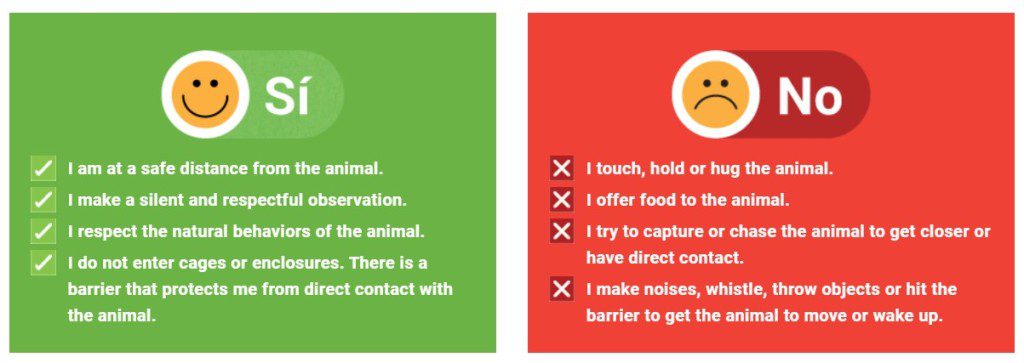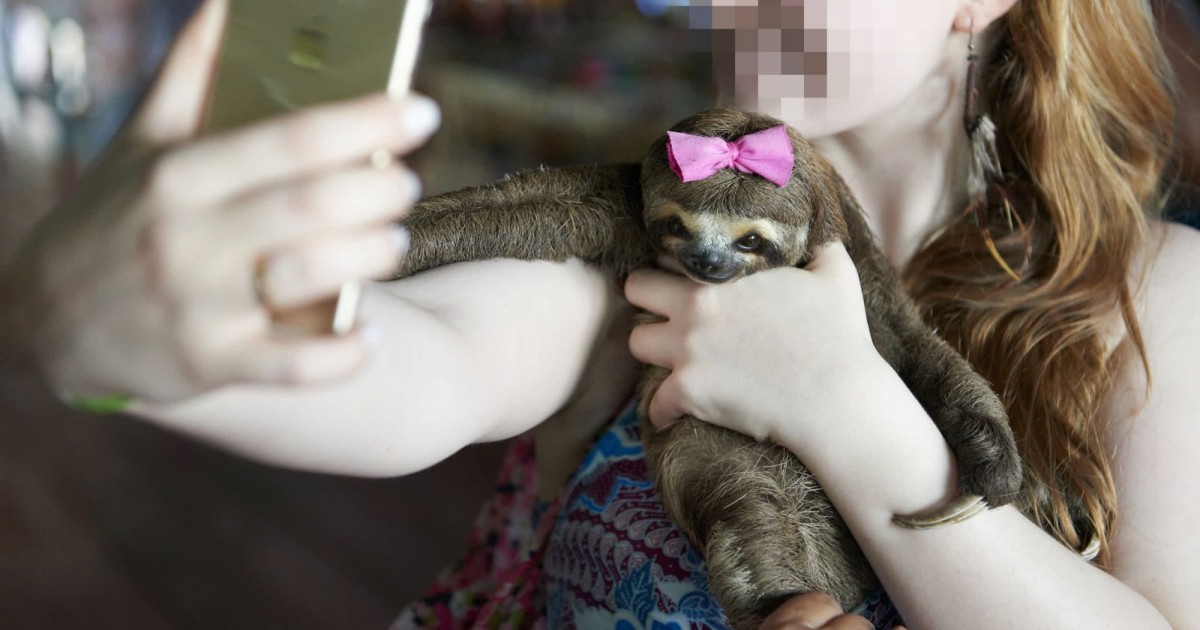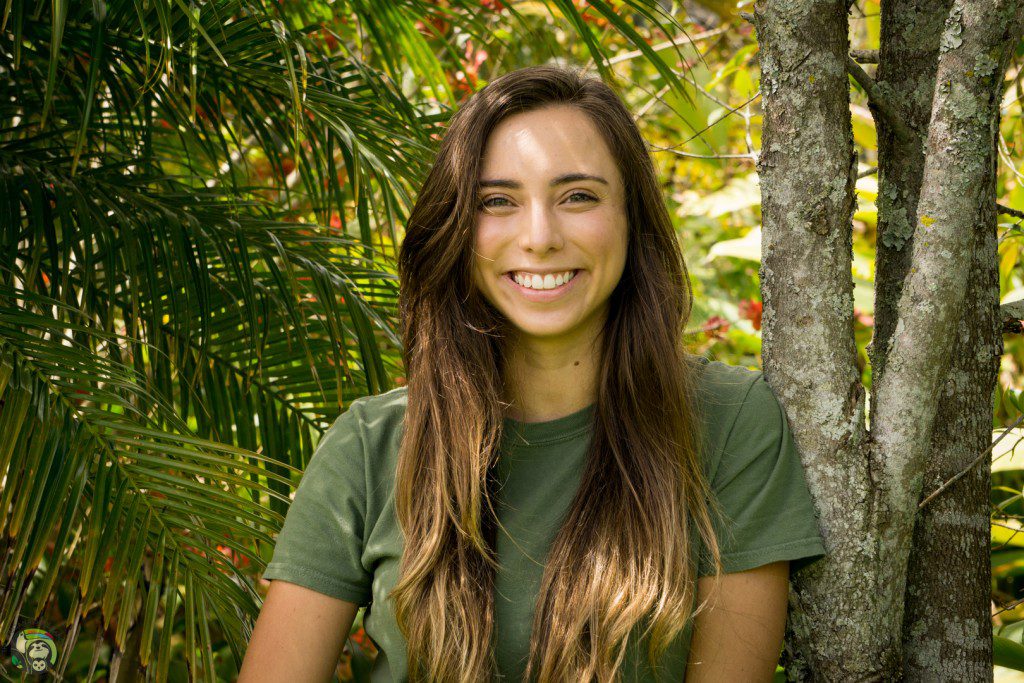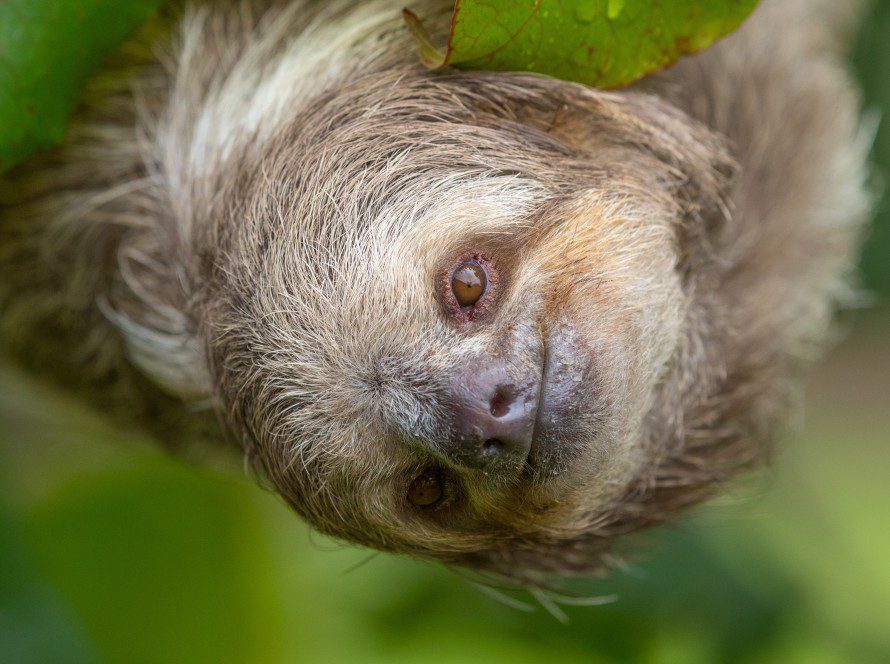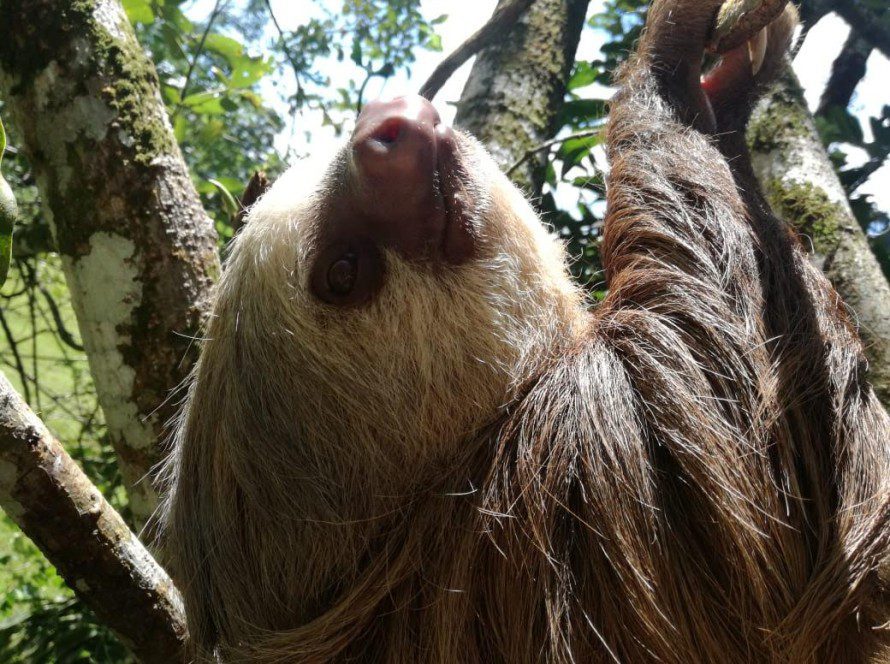“It’s just a picture, what is the big deal?”
“But animals are cute, and if I’m a rescue center, they know what they’re doing!”
“Why? The animal looks very happy and cute!”
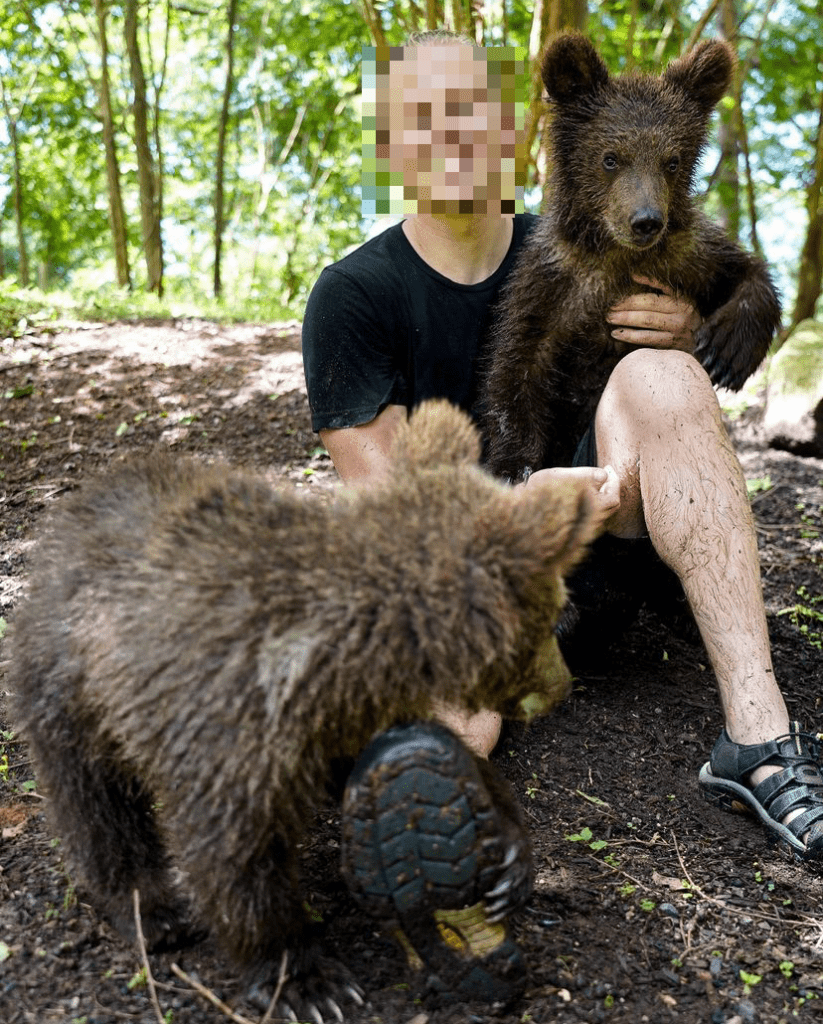
These are some of the thoughts that you might think of when you read the title of this post. And we understand why you think this! But today, we want to enlighten you about why animal selfies, specifically wildlife selfies, are a bad thing, and why they are illegal in Costa Rica.
Animal selfies are more harmful than the seeming harmlessness they portray. To your surprise, these selfies are animal cruelty. That’s right, cruelty… and this is almost the case every time
Our purpose is not to drive you away from visiting rescue centers, zoos, or wildlife parks, or wanting to learn about animals and share your vacation pictures. All we are saying is do your homework,o the proper research to make sure you are not promoting cruelty and harming those who you actually love in the process. This way, we can all help eradicate animal cruelty through animal selfies.
So, what’s wrong with selfies?
First up, the majority of these pictures involve people picking up wild animals to take pictures with them, like this one here. Wild animals are not used to being held by humans – it goes against their nature and survival instincts. From this, they can be scared, stressed, and get really ill, even if they don’t show it, but they can certainly react and harm you. Not to mention that if an animal is conditioned to be handled for your selfie, it usually required that animal to go through manipulation to make them behave for your photo.
Additionally – and we think we have all learned this from the coronavirus pandemic – there is a huge risk of diseases carrying from people to animals, and vice versa.
Last but certainly not least, it contributes a lot to illegally kept wildlife, including trade, the black market, and captivity. Wanting pictures with wild animals creates a market, and people will do anything to get that money. This involves keeping animals in small spaces in order to have them ready for pictures with tourists; separating small baby animals from their moms, sedating them, and removing them from their natural habitats. The sad reality is, if a place is letting you take these pictures with animals, they don’t really have the animal’s best interests at heart.
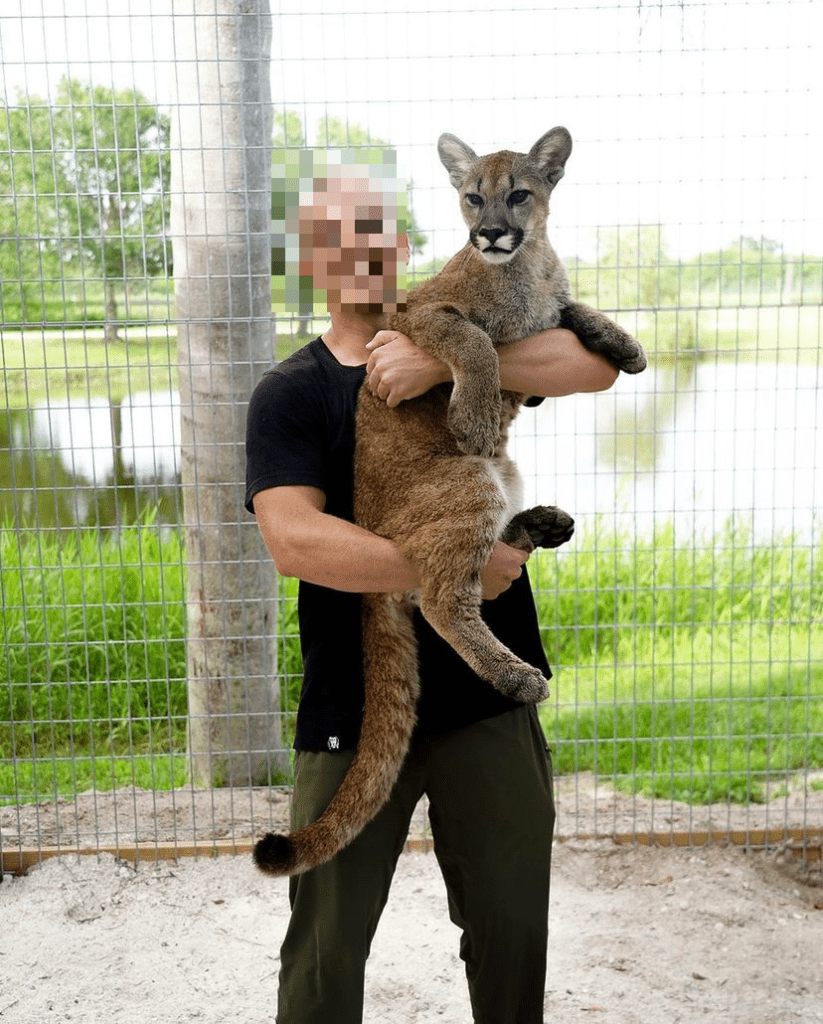
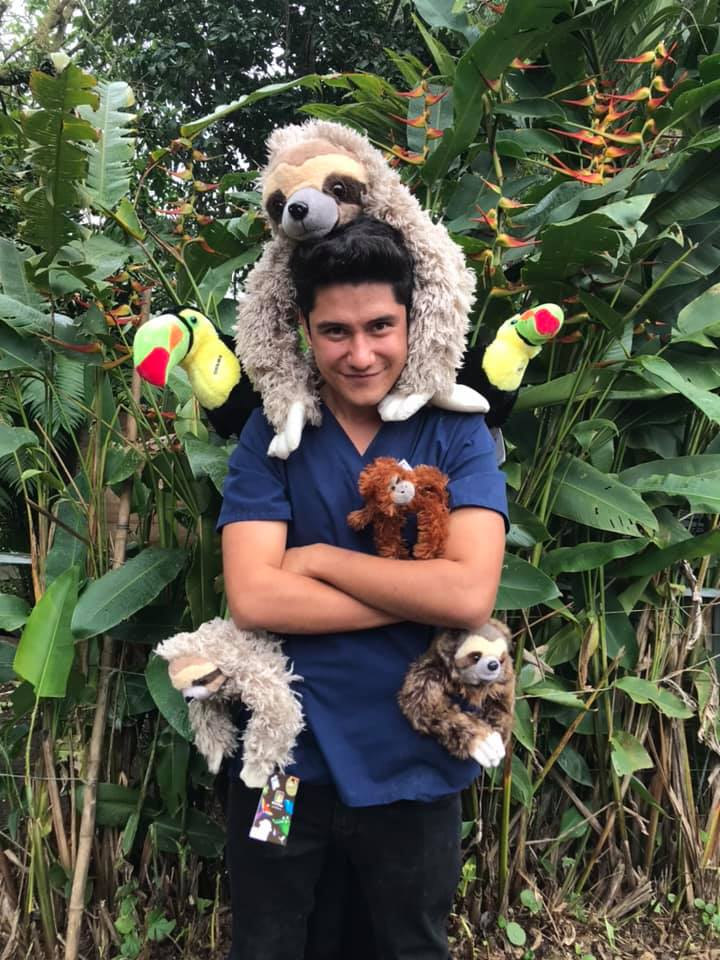
What is a good alternative?
First up, do proper research on the places you want to visit! Make sure they don’t support animal selfies, and if you’re in Costa Rica, make sure they are a certified rescue center since it means they are under the jurisdiction of the government.
Once you are in this safe rescue center, make sure you keep a safe distance from the wildlife to not stress them or put yourself in danger. With a safe distance, you can ask someone to take a picture of you with the animal in the background, or even just take pictures of the animals themselves (always keeping flash off, of course).
Toucan Rescue Ranch is proud to be part of the #stopanimalselfies campaign, set by the Costa Rican Institute and the Costa Rica Ministry of Environment and Energy. We don’t encourage animal handling or animal selfies; instead, we teach you about how we can protect and love nature in a safe, respectful way, so these wild animals will live for many, many years to come! And yes, there’s even an ethical selfie that you can learn about right here during an educational walk of our sanctuary!
